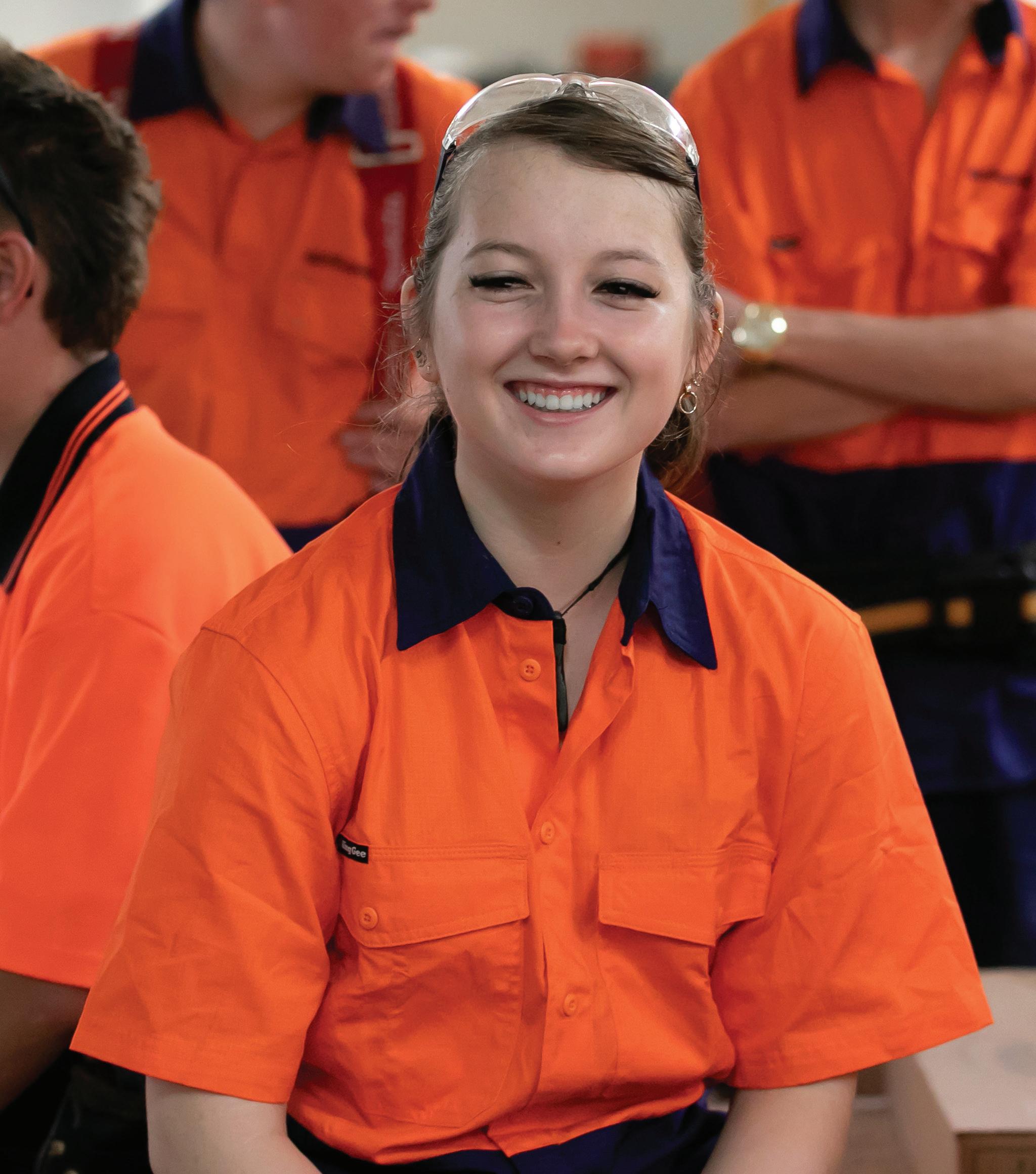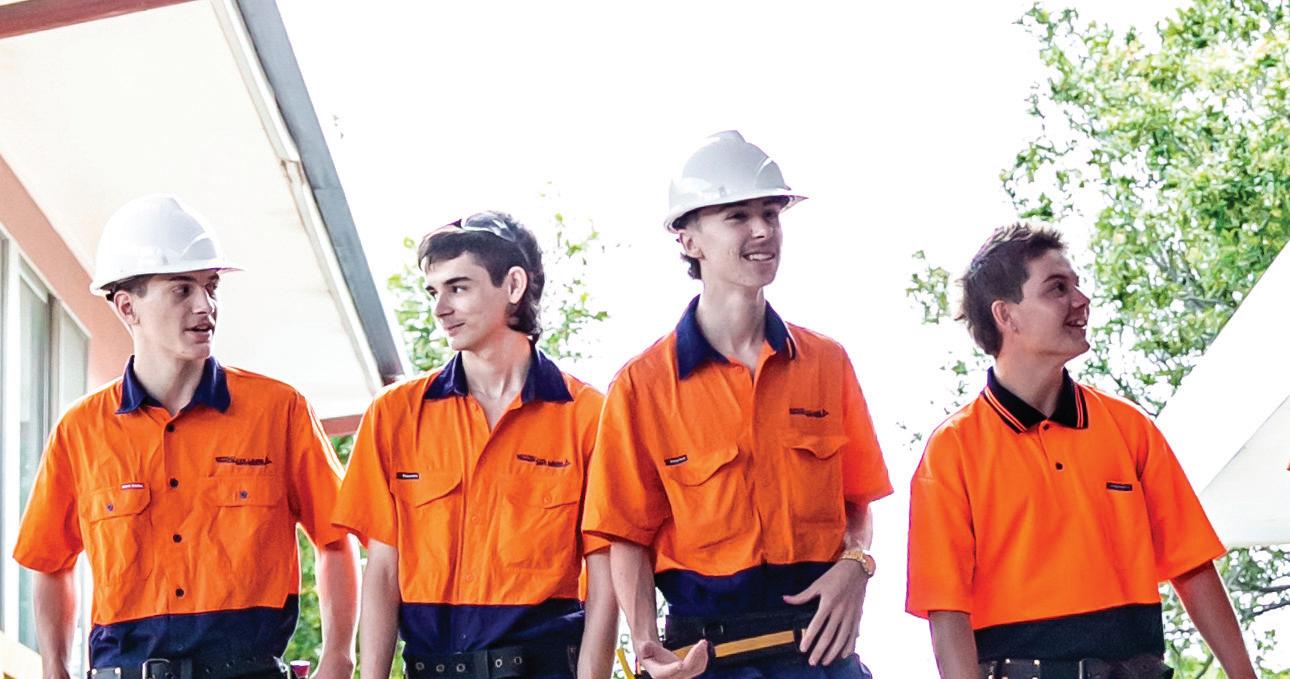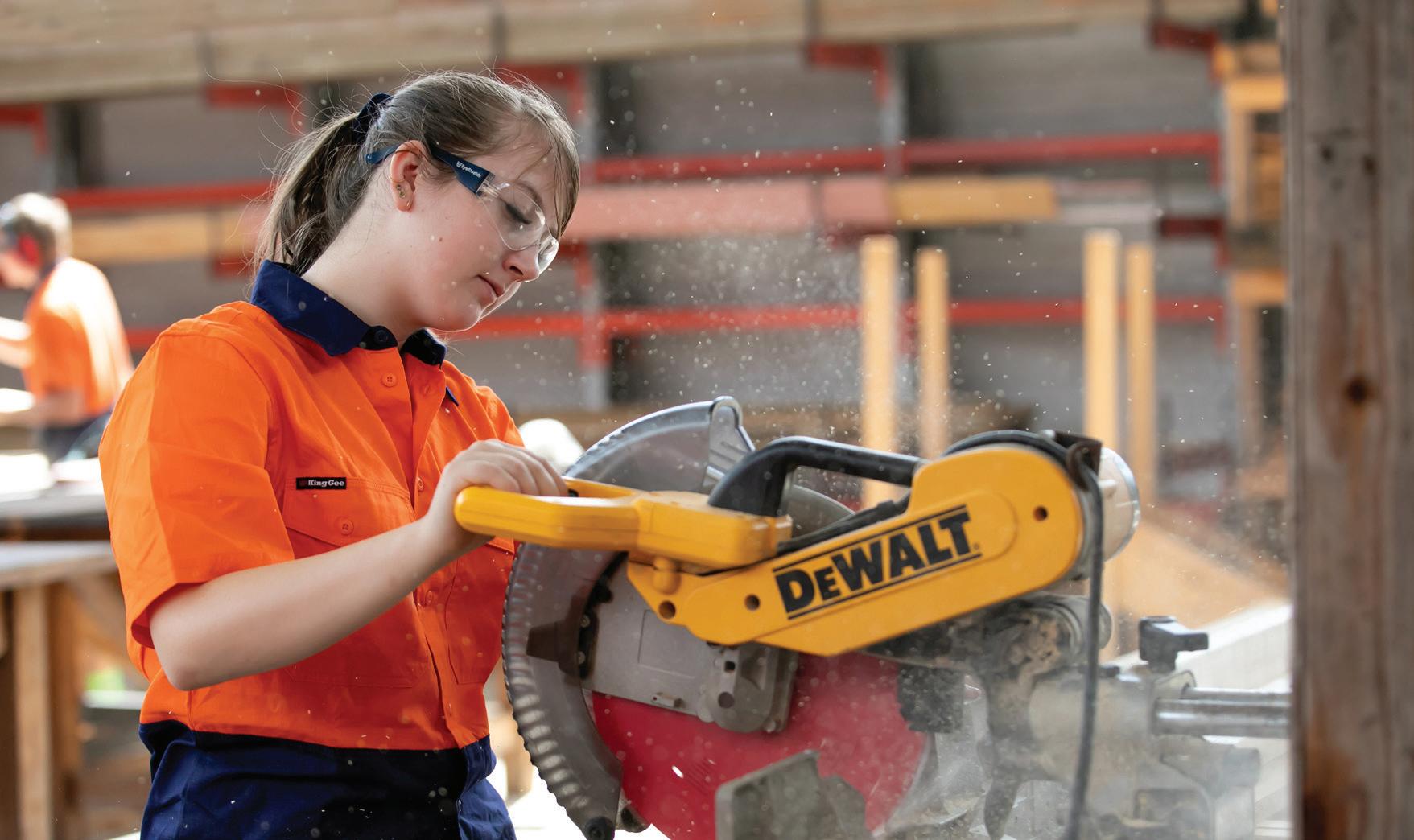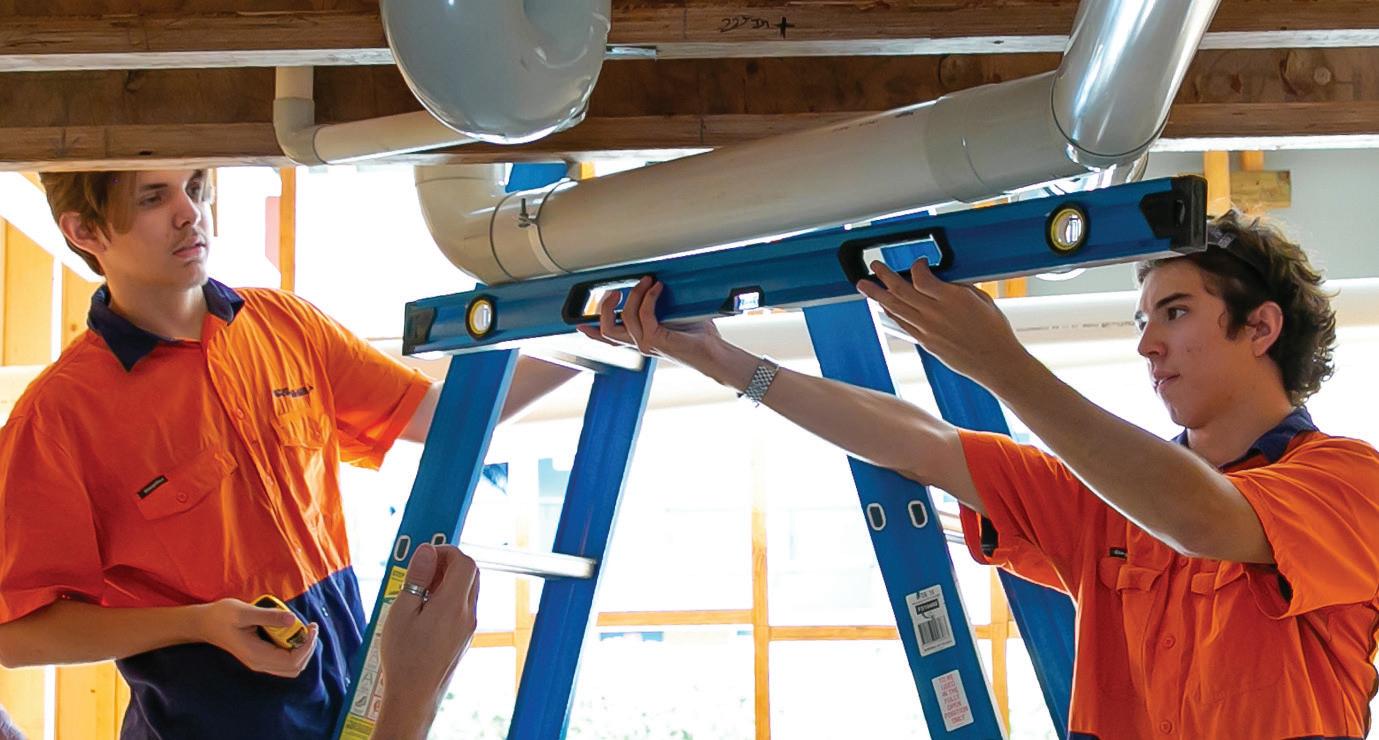VET IN SCHOOLS
Australian Trade Training College







Students enrolling into a VET in Schools trade training program at the Australian Trade Training College will be starting a journey of possibility and opportunity. A journey where students apply hands-on practical learning in industry current and simulated-work training scenarios which prepares students to be confident in the workplace and the next phase of their lives.
Australian Trade Training College has been a leader in VET in Schools trade training for over 15 years, and are recognised by employers for the hands-on technical skills development for Year 10-12 students. Our provision of VET in Schools supports the opportunity for Apprenticeship pathways for all students. There is nothing better than seeing a student start and successfully end their school journey, knowing that the trade training they have completed with us has set them on a future career path.
The Australian Trade Training College is here to assist in foundation trade training for:
• Automotive
• Construction
• Electrotechnology
• Engineering
• Plumbing
Paving the way for a skilled workforce and future tradespersons, the Australian Trade Training College looks forward to supporting students through their vocational education learning journey.
Build knowledge, learn skills and develop capabilities.
Pauline Grant-Smith
VETiS is a program that enables students to gain nationally recognised qualifications while at school. Students learn skills and knowledge required for specific industries.
VETiS can be undertaken in years 10, 11 and 12, and can count towards the Queensland Certificate of Education.
VET can also be undertaken while a young person is still enrolled at school through a school-based apprenticeship or traineeship (SAT).
VETiS qualifications are funded by the VET Investment budget and delivered by approved Registered Training Organisations (RTOs) who are a Skills Assure Supplier. Students can complete one employment stream qualification at certificate I or II level.
Training is provided fee-free to school students. Talk to your school VET Coordinator about the qualification that is right for you from the range of programs offered by Australian Trade Training College.
Vocational Education and Training in Schools (VETiS) is the perfect stepping stone for any young person enrolled in senior secondary wishing to obtain a career within a trade. VETiS provides students with practical experience and better employability outcomes, and assists with developing and improving their interpersonal skills.
Not only does VETiS training relate directly to work, students earn points towards their Queensland Certificate of Education (QCE) and after successful completion they walk away with a nationally recognised qualification, ready to seek employment as an apprentice in their chosen trade.
The Australian Trade Training College is recognised as a leading Registered Training Organisation with Schools across South East Queensland. Delivering multiple qualifications with a variety of flexible delivery modes, Australian Trade Training College are here to meet the needs of your school and continue the delivery of high quality face to face training.

To be eligible students must:
• Be over 15 years of age
• Be undertaking year 10, 11 or 12 within a Queensland school
• Be an Australian citizen, New Zealand citizen, Australian permanent resident (includes humanitarian entrant) or hold temporary resident status with the necessary visa and work permits on the pathway to permanent residency
• Be a permanent Queensland resident
• Not have enrolled in or completed another qualification funded by VETiS through the VET Investment program
Practical tasks involving servicing vehicles, conducting wheel balance and changing tyres. Hands on project to dismantle and assemble an engine using the appropriate tools and equipment.
Employment Pathways
• Vehicle Service Assistant
• Marine Service Assistant
• Marine Mechanical Apprentice
• Automotive Apprentice
We will assist in work placement for interested students in their respective trade areas.
12 Months
7
5

Practical tasks will include reading and interpreting plans, carrying out levelling procedures and using appropriate tools and equipment while undertaking a basic construction project.
• Construction Trades Worker (entry level)
• Construction Apprentice
We will assist in work placement for interested students in their respective trade areas.
12 Months
8
3


Understand electrical prep work to support licensed electricians. Practical activities such as installing conduit above and below ground and laying the foundation work for household electrical installations.
Employment Pathways
• Electrotechnology Apprentice
• Trades Assistant
We will assist in work placement for interested students in their respective trade areas.
18 Months
270 Core Weighting Points
140 General Elective Weighting Points
Banyo Campus
Scarborough Campus Meadowbrook Campus Toowoomba Campus

Practical activities will include using workshop and electric welding machines, pulling apart and re-assembling engineering mechanisms, using hand and power tools and undertaking a basic engineering project.
Employment Pathways
• Engineering Apprentice
We will assist in work placement for interested students in their respective trade areas.
12 Months
4 Core units
8 Elective units
Scarborough Campus

Practical activities will include the installation of pipework, testing and maintaining fixtures and gas regulators and installing gas appliances, water tanks and water heaters.
Employment Pathways
• Apprentice Plumber
• Apprentice Roof Plumber
As part of the Certificate II in Plumbing, students are required to complete 220 hours of work placement in the Plumbing Industry.
18 Months
16 Core units
2 Elective units Banyo Campus Scarborough Campus
I love working for the Australian Trade Training College as a trainer as I know that what I do in the start of the career for a new person to the trade, or even the Son or Daughter of a parent that has an engineering background, I can make a difference for them.
Just because they have a background at home with Engineering, does not make a good tradesperson, and correcting learnt behaviours that are not really good in the trade is sometimes challenging as well as rewarding at the same time.
With the “Clean Skins” it is easy to show and talk about “Best Practice” with them, and then back this up with the Practical application in our college. This allows them the chance to get into a workplace and do things correctly from the start, and then lead the way with the “Best Practice” methods that will only lead to a better career and future in the Engineering industry.
I am proud to be part of this crucial start of budding careers, and know that what I do now, leads to better skilled tradespeople later on in life, which benefits the Industry as a whole at the same time.
Jamie Walters Engineering Trainer